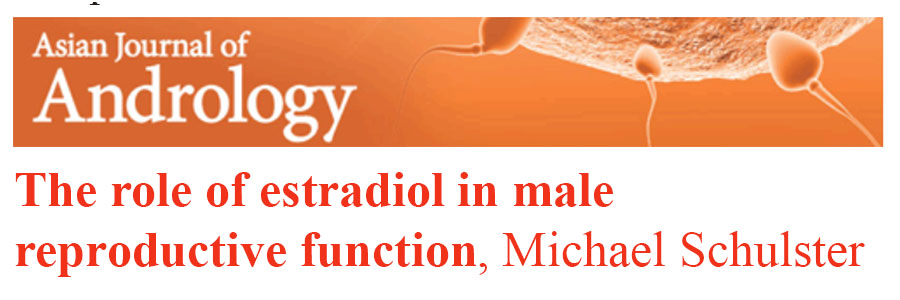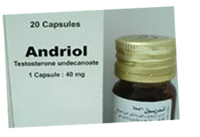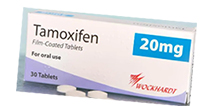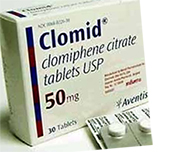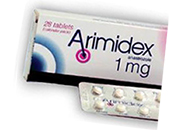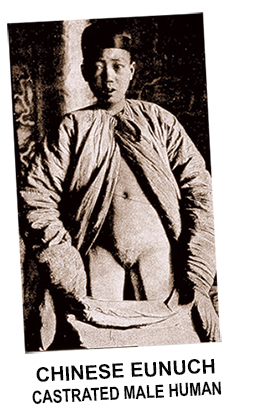
Testing whether "Tongkat Ali" actually is Tongkat Ali
A dubious study about Tongkat Ali and liver injury
Articles, videos about Tongkat Ali, Black Ginger, and Butea Superba
Articles, videos about optimal sex
Tongkat Ali better than just raising testosterone
Libido isn't a function of just testosterone, it is the result of a balance and interplay of a range of hormones, including testosterone, but also involving estrogens, cortisol, and prolactin. There are even more hormones at play in sexual desire, and so are neurotransmitters, and of course the ribosomes of cells where proteins are manufactured that are integrated into cell walls as receptors.
By and large, Western understanding has a narrow view on libido. It is looking for a key chemical, and focuses on just testosterone. Here one broader-minded exception:
Quote: "Estradiol in men is essential for modulating libido, erectile function, and spermatogenesis. Estrogen receptors, as well as aromatase, the enzyme that converts testosterone to estrogen, are abundant in brain, penis, and testis, organs important for sexual function. In the brain, estradiol synthesis is increased in areas related to sexual arousal. In addition, in the penis, estrogen receptors are found throughout the corpus cavernosum with high concentration around neurovascular bundles... Regulation of testicular cells by estradiol shows both an inhibitory and a stimulatory influence, indicating an intricate symphony of dose-dependent and temporally sensitive modulation."
Exogenous testosterone, or increased, unbalanced levels of testosterone following the use of the medications mentioned above, may improve your strength in athletic competition, and there may be an anabolic (muscle-building) component.
Now enter our Tongkat Ali extract. It has been observed over thousands of years, and long before testosterone was discovered as a chemical compound, that Tongkat Ali increases the frequency of sexual conduct, and optimizes sexual pleasure. Yes, elevated testosterone levels can be observed after a prolonged consumption of Tongkat Ali. But this herbal also modulates other aspects of the endocrine system, and it's the overall synchronization of libido-related parameters, that makes for the efficacy of Tongkat Ali.
This cannot be matched by testosterone replacement therapy, or the other pharmaceuticals mentioned above.
References:
Bedir, Erdal; Abou-Gazar, Hassan; Ngwendson, Julius Ngunde; Khan, Ikhlas Ahmad (2003), Eurycomaoside: A New Quassinoid-Type Glycoside from the Roots of Eurycoma longifolia, Chemical and Pharmaceutical Bulletin, Volume 51, Issue 11, Pages 1301-1303
Bhat, Rajeev; Karim, A.A. (2010), Tongkat Ali (Eurycoma longifolia Jack): A review on its ethnobotany and pharmacological importance, Fitoterapia, Volume 81, Issue 7, Pages 669-679
Bucci LR. (2000), Selected herbals and human exercise performance, The American Journal of Clinical Nutrition, Vol 72(2 Suppl) Pages 624S–36S
Chaturapanich, G.; Chaiyakul, S. ; Verawatnapakul, V. ; Pholpramool, C. (2008) Effects of Kaempferia parviflora extracts on reproductive parameters and spermatic blood flow in male rats, Reproduction, vol. 136, no. 4, pp. 515–522
Foster ZJ, Housner JA. (2004), Anabolic-androgenic steroids and testosterone precursors: Ergogenic aids and sport, Current Sports Medicine Reports, Vol 3 Pages 234–41
George A, Udani J, Abidin NZ, Yusof A. (2018).
Efficacy and safety of Eurycoma longifolia (Physta®) water extract plus multivitamins on quality of life, mood and stress: a randomized placebo-controlled and parallel study. Food Nutrition Resources, Vol 62.
Foster ZJ, Housner J A. (2004), Anabolic-androgenic steroids and testosterone precursors: Ergogenic aids and sport Curriculum Sports Medicine Reports, Vol 3 Pages 234–41
Kotirum S.; Ismail S.B.; Chaiyakunapruk N. (2015),
Efficacy of Tongkat Ali (Eurycoma longifolia) on erectile function improvement: systematic review and meta-analysis of randomized controlled trials,
Complementary Therapies in Medicine Volume 23, Pages 693-698, https://doi.org/10.1016/j.ctim.2015.07.009
Lazarev, Artemii; Bezuglov, Eduard (2021), Testosterone Boosters Intake in Athletes: Current Evidence and Further Directions, Endocrines, Volume 2, Issue 2, https://doi.org/10.3390/endocrines2020011
Manaf, Normaliza Abdul; M., Wadha; Latiff, Aishah, The impact of tongkat ali consumption on endogenous steroid profile, researchgate.net
Moses , Lusia Barek; Bakar ,Mohd Fadzelly Abu; Mamat, Hasmadi, Aziz, Zaleha Abdul (2021), Unfermented Freeze-Dried Leaf Extract of Tongkat Ali (Eurycoma longifolia Jack.) Induced Cytotoxicity and Apoptosis in MDA-MB-231 and MCF-7 Breast Cancer Cell Lines Hindawi, Volume 2021, Article ID 8811236, https://doi.org/10.1155/2021/8811236
Muhamad, Ayu S.; Ooi, Foong K.; Chen, Chee K. (2015), Effects of Eurycoma longifolia on Natural Killer Cells and Endurance Running Performance, International Journal of Sports Science, Volume 5(3) Pages 93-98
Stein, Richard A.; Schmid, Kira; Bolivar, Jowell; Swick, Andrew G.Joyal, Steven V. Hirsh, Steven P. (2018), Kaempferia parviflora ethanol extract improves self-assessed sexual health in men: a pilot study, Journal of Integrative Medicine
Volume 16, Issue 4, Pages 249-254
Tewtrakul, S.; Subhadhirasakul, S. (2008), Effects of compounds from Kaempferia parviflora on nitric oxide, prostaglandin E2 and tumor necrosis factor-alpha productions in RAW264.7 macrophage cells, Journal of Ethnopharmacology, Vol 120, Pages 81-84
Trisomboon H (2008), Kaempferia parviflora, a Thai Herbal Plant, neither Promote Reproductive
Function nor Increase Libido via Male HormoneThai Journal of Physiological Sciences, Vol. 21 No. 2
Wattanapitayakul, S.K.; Chularojmontri, L.; Herunsalee, A.; Charuchongkolwongse, S.; Chansuvanich, N. (2008), Vasorelaxation and antispasmodic effects of Kaempferia parviflora ethanolic extract in isolated rat organ studies , Fitoterapia, Volume 79, Pages 214-216, 10.1016/j.fitote.2007.11.017
Wattanathorn, J. ; Muchimapura, S.; Tong, U.T.; Saenghong, N.; Thukhum
Sripanidkulchai (2012), B: positive modulation effect of 8-week consumption of Kaempferia parviflora on health-related physical fitness and oxidative status in healthy elderly volunteers
Evidence-Based Complementary and Alternative Medicine, Article 732816, 10.1155/2012/732816
Weerapol, Yotsanan; Tubtimsri, Sukannika; Jansakul, Chaweewan; Sriamornsak, Pornsak (2017), Improved dissolution of Kaempferia parviflora extract for oral administration by preparing solid dispersion via solvent evaporation, Asian Journal of Pharmaceutical Sciences, Volume 12, Issue 2, Pages 124-133
Wongsrikaew, Natcha; Woo, Hyun-Chul; Vichitphan, Kanit; Han, Jaehong (2011) , Supercritical CO2 for efficient extraction of polymethoxyflavones in Kaempferia parviflora, Journal of the Korean Society for Applied Biological Chemistry, Volume 54, Pages1008–1011
Yee, Than Than; Lwin, Kyi War Yi (2019), Study of Phytochemical Composition on Kaempferia parviflora Wall. ex Baker IEEE-SEM, Volume 7, Issue 7
Yenjai, Chavi; Prasanphen, Khanchara; Daodee, Supawadee; Wongpanich, Varima; Kittakoop, Prasat (2004), Bioactive flavonoids from Kaempferia parviflora, Fitoterapia, Volume 75, Issue 1, Pages 89-92
By tongkatali.org
tongkataliorg3@gmail.com
Updated August 19, 2022
